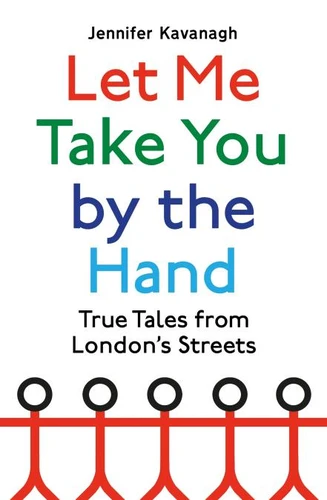Let Me Take You by the Hand. True Tales from London's Streets
Par :Formats :
Disponible dans votre compte client Decitre ou Furet du Nord dès validation de votre commande. Le format ePub protégé est :
- Compatible avec une lecture sur My Vivlio (smartphone, tablette, ordinateur)
- Compatible avec une lecture sur liseuses Vivlio
- Pour les liseuses autres que Vivlio, vous devez utiliser le logiciel Adobe Digital Edition. Non compatible avec la lecture sur les liseuses Kindle, Remarkable et Sony
- Non compatible avec un achat hors France métropolitaine
 , qui est-ce ?
, qui est-ce ?Notre partenaire de plateforme de lecture numérique où vous retrouverez l'ensemble de vos ebooks gratuitement
Pour en savoir plus sur nos ebooks, consultez notre aide en ligne ici
- FormatePub
- ISBN978-1-4087-1313-6
- EAN9781408713136
- Date de parution02/06/2021
- Protection num.Adobe DRM
- Infos supplémentairesepub
- ÉditeurLittle, Brown Book Group
Résumé
In 1861, the great journalist and social advocate Henry Mayhew published London Labour and the London Poor, an oral history of those living and working on the streets of Victorian London. Nothing on this scale had been attempted before. On the surface, the streets of London in 1861 and in 2019 are entirely different places. But dig just a little and the similarities are striking and, in many cases, shocking.
Taking Mayhew's book as inspiration, Jennifer Kavanagh explores the changes and continuities by collecting and mapping stories from today's London. Beggars, street entertainers, stalls selling a variety of food, clothes, second-hand goods, thieves and the sex trade are all still predominant. The rise of the gig economy has brought a multitude of drivers and cyclists, delivering and moving goods, transporting meals and people, all organized through smart phones but using the same streets as Mayhew's informants.
The precarity faced by this new workforce would also be familiar to the street-sellers of Mayhew's day. In terms of resources, gone are the workhouses, almshouses, paupers' lunatic asylums. Enter shelters, day centres, hostels, and food banks. Let Me Take You By The Hand is an x-ray of life on the streets today: the stories in their own words of those who work and live in our capital.
Taking Mayhew's book as inspiration, Jennifer Kavanagh explores the changes and continuities by collecting and mapping stories from today's London. Beggars, street entertainers, stalls selling a variety of food, clothes, second-hand goods, thieves and the sex trade are all still predominant. The rise of the gig economy has brought a multitude of drivers and cyclists, delivering and moving goods, transporting meals and people, all organized through smart phones but using the same streets as Mayhew's informants.
The precarity faced by this new workforce would also be familiar to the street-sellers of Mayhew's day. In terms of resources, gone are the workhouses, almshouses, paupers' lunatic asylums. Enter shelters, day centres, hostels, and food banks. Let Me Take You By The Hand is an x-ray of life on the streets today: the stories in their own words of those who work and live in our capital.
In 1861, the great journalist and social advocate Henry Mayhew published London Labour and the London Poor, an oral history of those living and working on the streets of Victorian London. Nothing on this scale had been attempted before. On the surface, the streets of London in 1861 and in 2019 are entirely different places. But dig just a little and the similarities are striking and, in many cases, shocking.
Taking Mayhew's book as inspiration, Jennifer Kavanagh explores the changes and continuities by collecting and mapping stories from today's London. Beggars, street entertainers, stalls selling a variety of food, clothes, second-hand goods, thieves and the sex trade are all still predominant. The rise of the gig economy has brought a multitude of drivers and cyclists, delivering and moving goods, transporting meals and people, all organized through smart phones but using the same streets as Mayhew's informants.
The precarity faced by this new workforce would also be familiar to the street-sellers of Mayhew's day. In terms of resources, gone are the workhouses, almshouses, paupers' lunatic asylums. Enter shelters, day centres, hostels, and food banks. Let Me Take You By The Hand is an x-ray of life on the streets today: the stories in their own words of those who work and live in our capital.
Taking Mayhew's book as inspiration, Jennifer Kavanagh explores the changes and continuities by collecting and mapping stories from today's London. Beggars, street entertainers, stalls selling a variety of food, clothes, second-hand goods, thieves and the sex trade are all still predominant. The rise of the gig economy has brought a multitude of drivers and cyclists, delivering and moving goods, transporting meals and people, all organized through smart phones but using the same streets as Mayhew's informants.
The precarity faced by this new workforce would also be familiar to the street-sellers of Mayhew's day. In terms of resources, gone are the workhouses, almshouses, paupers' lunatic asylums. Enter shelters, day centres, hostels, and food banks. Let Me Take You By The Hand is an x-ray of life on the streets today: the stories in their own words of those who work and live in our capital.



